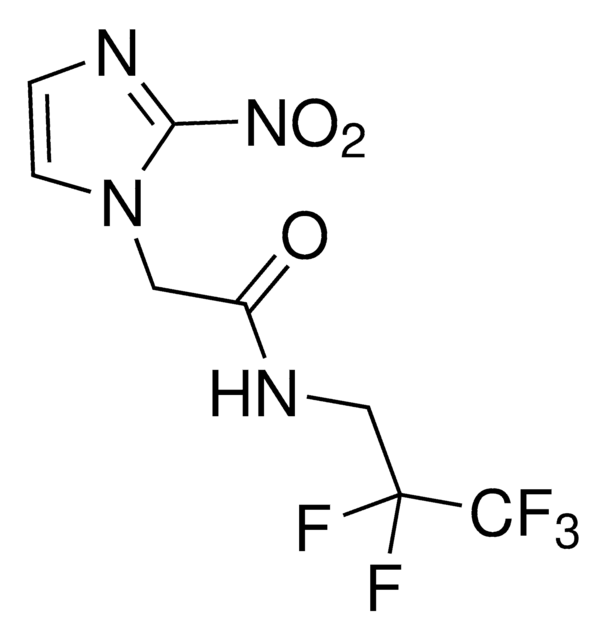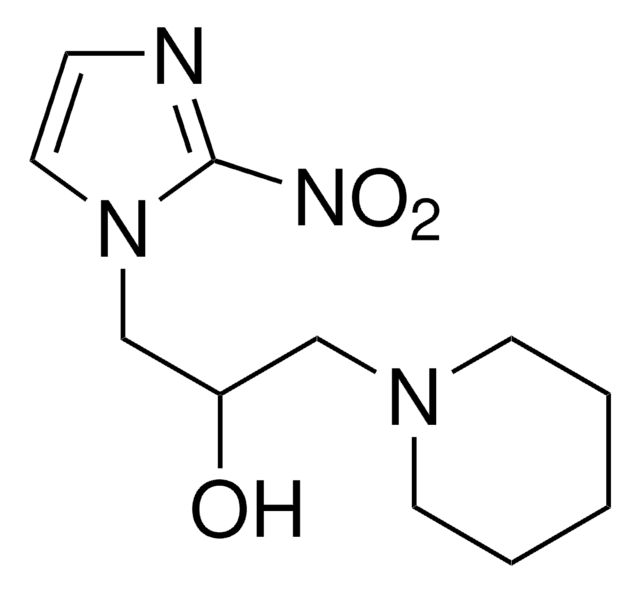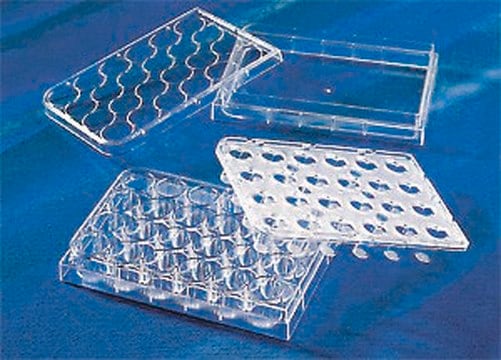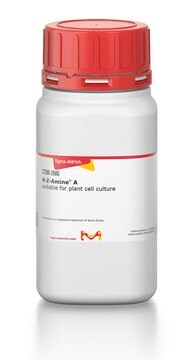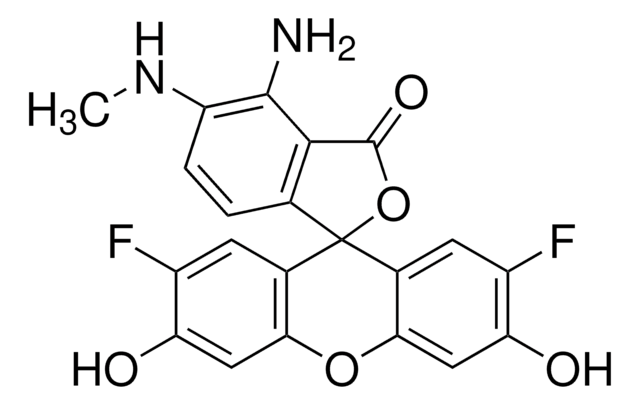EF5011
Anti-EF5 Antibody, clone ELK3-51 Antibody, Cyanine 3 conjugate
clone ELK3-51, from mouse, CY3 conjugate
About This Item
Productos recomendados
biological source
mouse
conjugate
CY3 conjugate
antibody product type
primary antibodies
clone
ELK3-51, monoclonal
species reactivity
rat, mouse, human
technique(s)
immunofluorescence: suitable
immunohistochemistry: suitable
isotype
IgG1
General description
Advantages of the EF5 hypoxia detection method:
• EF5 exists in only one form; Pimidozole, an alternative hypoxia marker, exists in two forms; one of which is charged and very hydrophilic, the other lipophilic. Pimidozole thus has a very complex biodistribution. In contrast, EF5 is lipophilic and uncharged and this allows very rapid and even tissue distribution.
• EF5 binding images can be calibrated to provide quantitative data on the pO2 values of each cell (1). The fluorescent images obtained from EF5 binding can be calibrated according to camera settings and a “cube-binding” value which is obtained through a separate procedure. The intensity values of calibrated images are directly related to actual tissue pO2 values. As a result, these images provide information regarding not only where hypoxic areas may or may not be, but also data regarding the distribution and levels of hypoxia.
Reference:
Koch CJ (2002) Measurement of absolute oxygen levels in cells and tissues using oxygen sensors and 2-nitroimidazole EF5. Methods in Enzymology 352: 3-31.
Application
Cancer
Hypoxia
Storage and Stability
Other Notes
Disclaimer
¿No encuentra el producto adecuado?
Pruebe nuestro Herramienta de selección de productos.
Storage Class
12 - Non Combustible Liquids
wgk_germany
WGK 2
flash_point_f
Not applicable
flash_point_c
Not applicable
Certificados de análisis (COA)
Busque Certificados de análisis (COA) introduciendo el número de lote del producto. Los números de lote se encuentran en la etiqueta del producto después de las palabras «Lot» o «Batch»
¿Ya tiene este producto?
Encuentre la documentación para los productos que ha comprado recientemente en la Biblioteca de documentos.
Nuestro equipo de científicos tiene experiencia en todas las áreas de investigación: Ciencias de la vida, Ciencia de los materiales, Síntesis química, Cromatografía, Analítica y muchas otras.
Póngase en contacto con el Servicio técnico